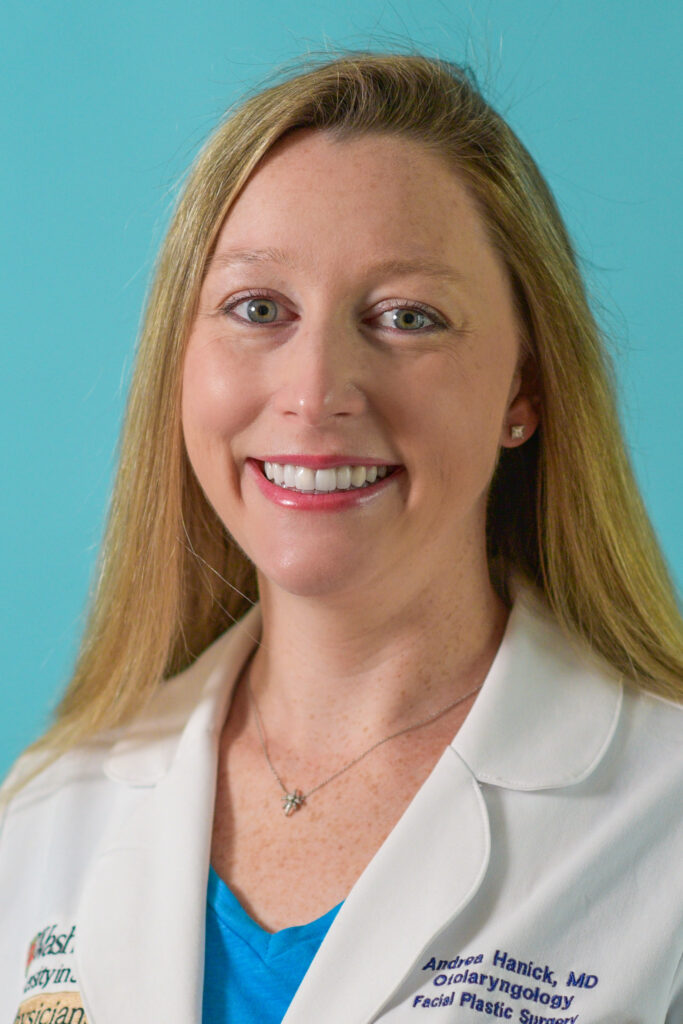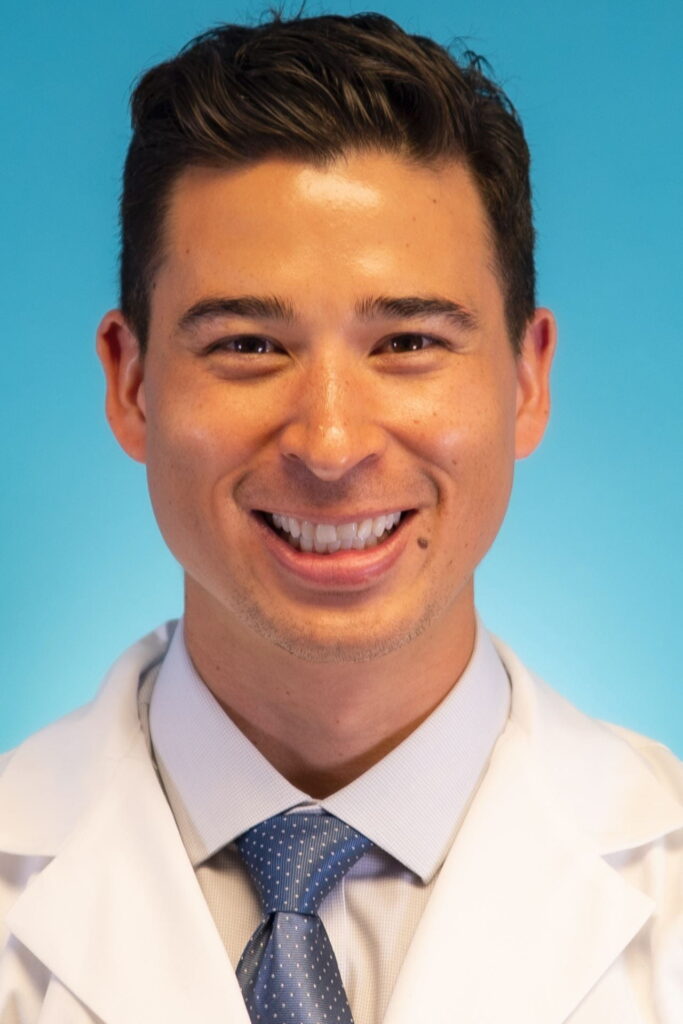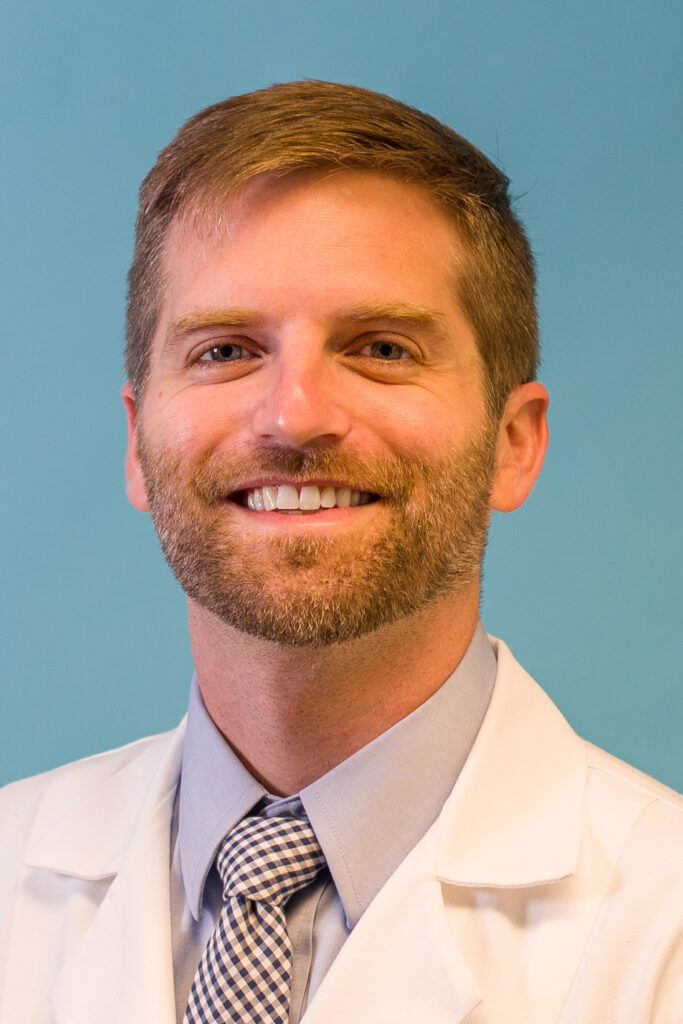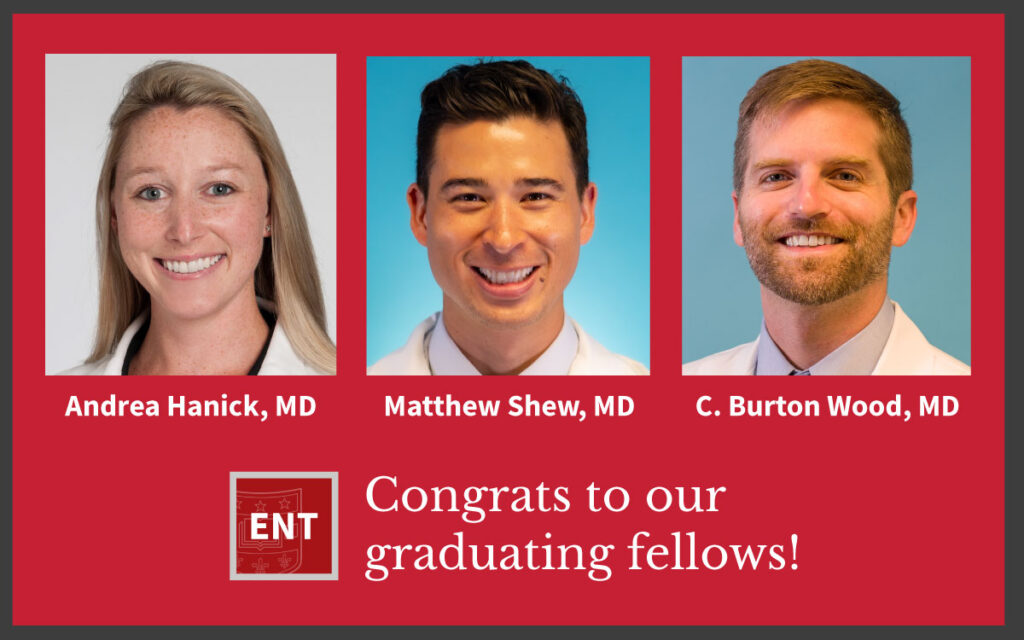Fellows in the Department of Otolaryngology—Head and Neck Surgery have spent the past one to two years completing intense surgical training with their specialty mentors. As they prepare for graduation, we asked each to share some thoughts on their fellowship experience.
Andrea L. Hanick, MD, fellow in facial plastic and reconstructive surgery

What’s the next step in your career?
I’m excited to be joining a private practice, Missouri ENT, in Columbia, Missouri.
What is the most important thing you learned about your specialty during your fellowship here?
Fellowship has really highlighted the extreme diversity of our sub specialty in terms of both patient pathologies/concerns and treatment strategies. There is a huge range of problems from major reconstructive defects to issues with skin texture and laxity. Each patient’s concern is important to that individual. Similarly, each of my mentors approached patient care and treatment strategies with a unique perspective and experience. It’s humbling to again see how much there is still to learn!
What is the most memorable patient or professional moment you experienced during your fellowship?
One of the most memorable moments of fellowship was operating with Dr. [Greg] Branham and realizing our rhinoplasty patient was experiencing intraoperative malignant hyperthermia. I never expected I’d see that pathology! Ultimately the patient did very well but that was quite the unexpected experience.
Matthew A. Shew, MD, fellow in neurotology

What’s the next step in your career?
I am very pleased to be joining the otolaryngology faculty here at Washington University when my fellowship ends.
What is the most important thing you learned about your specialty during your fellowship here?
I am incredibly thankful for the teaching, support, and mentorship I have received over the last 2 years. One of the important things I have learned throughout my training is my overall approach to patient care. I can only hope to emulate how they approach each individual patient in clinic and in the operating room with professionalism, empathy, and dedication to excellence.
What is the most memorable patient or professional moment you experienced during your fellowship?
There are so many memorable patient and professional moments it’s hard to just pick one. Professionally, my best memories are the relationships I have made while training at Washington University. It’s been an absolute honor to work hard and laugh alongside such a great group of people. From our patients, it’s been incredible to help such an appreciative patient population, and I look forward to continuing the strong tradition here at Washington University.
C. Burton Wood, MD, fellow in head and neck oncology and microvascular reconstruction

What’s the next step in your career?
I will be joining the University of Tennessee Health Science Center’s Department of Otolaryngology as an Assistant Professor of Head and Neck Surgery.
What is the most important thing you learned about your specialty during your fellowship here?
I have seen time and again the importance of teamwork in Head and Neck surgery. This is critical not just in multidisciplinary care with radiation and medical oncologists, but also in collaboration with other surgeons. The input from others regarding next steps in difficult situations or challenging clinical scenarios has been tremendously helpful throughout this year.
What is the most memorable patient or professional moment you experienced during your fellowship?
I have enjoyed transitioning from struggling through the micro portions of cases early in the year to becoming more independent and getting to take residents through microvascular anastomosis in some situations. Transitioning from a learner to a teacher is a big jump, and being able to make some of that transition during this year has been hugely beneficial.
